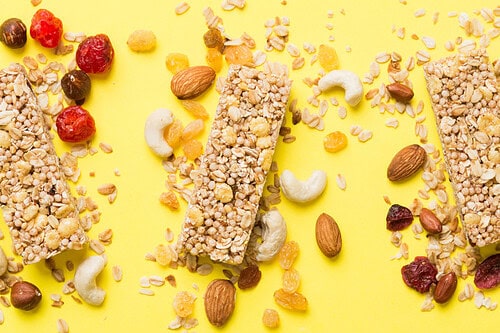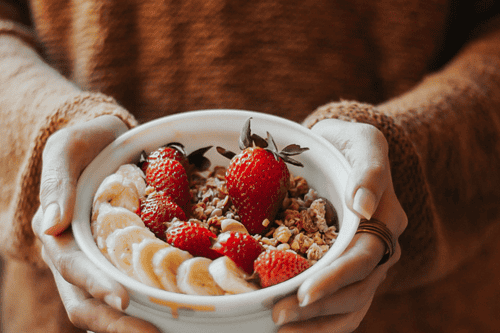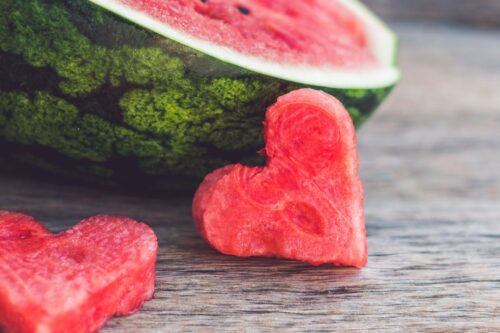So, what are macronutrients and why are they important? I am sure that if you follow my blog or any of my social media platforms for that matter, you will know that I am super passionate about macronutrient balance being the fundamental underpinnings of a wholefood diet. When our meals are macronutrient balanced we create satiety, providing meals that hold us for longer, keeping our energy levels consistent and cravings at bay.
So what exactly are macronutrients?
Macronutrients are nutrients needed in large amounts by the body for cellular energy and growth (whereas micronutrients are needed in lesser amounts). There are three major macronutrients; carbohydrates, protein and fats.
carbohydrates
Carbohydrates are made up of starches, cellulose and sugars. Essentially starches (a group of sugar molecules stuck together) are broken down into sugars in our bodies after ingestion and used for energy production. Cellulose is not digestible and passes through our digestive tract.
Biochemically we call carbohydrates saccharides, and they can be divided into four groups: monosaccharides, disaccharides, oligosaccharides, and polysaccharides. From a nutritionists perspective, we often label carbs as simple or complex carbohydrates. Generally, the more complex a carbohydrate is, the more sugar molecules are involved in its structure (such as a polysaccharide or oligosaccharides). When we refer to a complex carbohydrate food we are implying that it contains digestible saccharide (sugars) from a wholefood source, alongside fiber and nutrients, as opposed to processed carbohydrates, which provide energy but few other nutrients and negligible fiber.
Generally simple carbohydrate foods are broken down and absorbed quickly, as (in the majority) they do not contain much fibre to slow down the absorption process. They most often fall into the categories of monosaccharides and disaccharides. An excess intake of these carbs means your body can only use so much for fuel before it needs to ‘store’ the extra sugar molecules (generally as fat). A large excess of these types of carbohydrates can also put a lot of strain on our insulin levels.
Complex carbs on the other hand take longer to break down due to their high fibre content, meaning they are used for more long lasting energy, and therefore generally not stored so easily (unless eaten in excess). They are also a rich and wonderful source of B vitamins and minerals.
Please note however that the above can vary, especially from a biochemical perspective. Fundamentally the more of a wholefood source of carbs we have, the more nutritional variety and balance we will intake. Lastly, the speed of digestion and utilisation of carbs will always be influenced by what other macronutrients are enjoyed along side it as part of a meal, along with our different metabolic requirements.
A short list of some lovely and nutritious sources of carbohydrates are:
- fruits and vegetables (in the majority lower in starch and best combined with one or both of the below options)
- high starch root vegetables such as sweet potato and potato
- cereals & grains such as whole wheat, rye, rolled oats, buckwheat, quinoa, amaranth, teff, millet, spelt, brown rice, whole wheat pasta, wild rice, barley, kumut, legumes.
How much complex carbohydrates should I eat per meal?
This will vary from person to person depending on their requirements, but a good rule of thumb is about the size of your clenched fist.
protein
Protein foods are broken down into amino acids in the body. They are large complex molecules made up of a sizeable array of amino acids. They are essential building blocks for metabolism, muscle strength, hormone function, enzyme function and immune health to name but a few. Protein in our meals is vital for creating satiety. Often if a meal is too deficient in protein we will feel hungry soon after, often leading to sugar cravings for ‘instant’ energy.
A short list of some lovely and nutritious wholefood sources of protein are:
- seafood, meats, eggs
- legumes & pulses, tofu, tempeh
- dairy – (cow/goat/sheep)
- nuts and seeds (especially hemp seeds)
- grains such as millet, quinoa, teff and buckwheat are also high in protein, but are best combined with more protein dense ingredients for a full spectrum of amino acids and overall satiety – like with this Mushroom Buckwheat Risotto.
How much protein should I eat per meal?
This will vary from person to person depending on their requirements, but a good rule of thumb is about the size of your palm (fingers excluded).
fats
Fats are broken down into fatty acids (triglycerides) in our bodies and are vital for brain function, cell membrane health, skin health and immune function.
Types of fats include saturated, poly unsaturated and mono unsaturated fats. We do need to be mindful of not going too crazy when it comes to fat intake, however eating quality fats daily as part of a balanced dietary intake is very advantageous. Essential fats (omega3 and omega 6) cannot be made in the body from simply constituents. They must be consumed from specific food sources and then digested to make them readily available.
Trans fats are the fats we need to avoid, which are created through overheating volatile oils. Generally if you eat a wholefood diet trans fats will not be a major concern. Do be mindful however of the quality of oils you purchase along with the freshness of your nuts and seeds too.
A short list of some lovely and nutritious sources of wholefood fats are:
- seafood, especially oily fish like salmon, tuna, sardines, calamari and mackerel
- extra virgin olive oil, flaxseed oil, macadamia nut oil, coconut oil, avocado oil and any other nut and seed oils that have not been heat treated or refined.
- raw nuts and seeds and their butters
- avocado and coconut
How much fat should I eat per meal?
This will vary from person to person depending on their requirements, but a good rule of thumb is about the size of your thumbs together.
As always, if you have any questions or queries about this topic or would like more individualised assessment of your own macronutrient intake you can contact us at the clinic here or email us on reception@jessicacox.com.au
ps. Thanks to my Dad for being such a fabulous hand model. xx
Jessica Cox is a qualified practicing Nutritionist with a Bachelor Health Science (Nutrition) and over 15 years of clinical experience. She is the founder and director JCN Clinic, published author and established recipe developer. Jessica is well respected within health and wellness space for her no fad approach and use of evidence-based nutrition.






[…] you confused about what macronutrients are? Or do you know what they are but don’t really know how to pop them together in a meal? […]